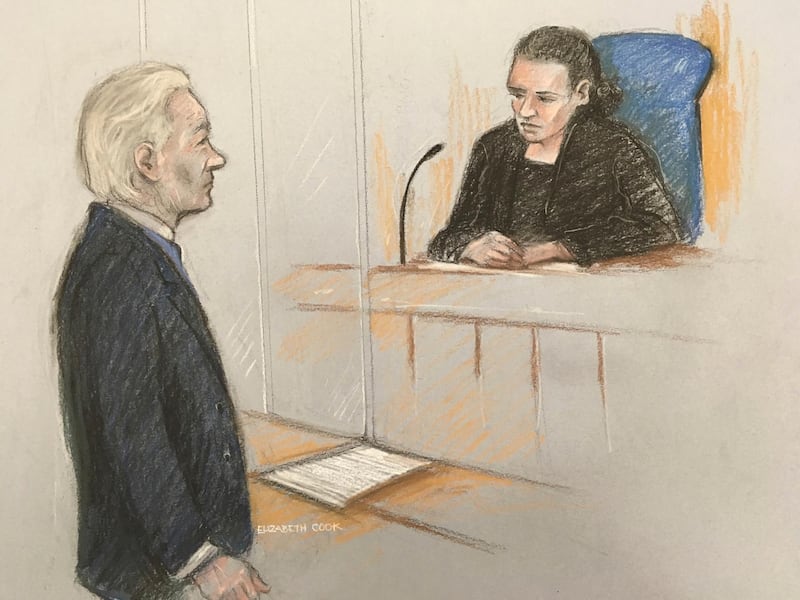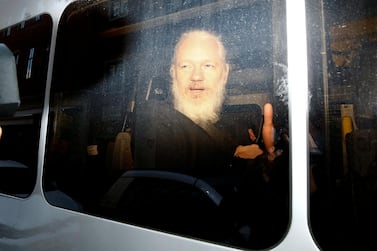The full extradition hearing of WikiLeaks founder Julian Assange will go ahead in February 2020 after a London judge rejected a request to delay proceedings by three months.
Assange, who complained about his prison conditions, faces 18 counts in the US including conspiring with former intelligence analyst Chelsea Manning to hack classified government computers.
Assange’s legal team say they need more time to prepare a defence against the “unprecedented” charges.
"I can't access any of my writings, it's very difficult to do anything and these people have unlimited resources, they have an unfair advantage," he said as he described his treatment at London’s high-security Belmarsh prison.
Assange suggested that someone had tried to steal his children's DNA before adding: "I can't think properly".
Appearing in public for the first time since April at Westminster Magistrates Court on Monday, he raised a fist in a defiant gesture to acknowledge his supporters but appeared to stutter as he gave his name and date of birth.
His lawyer, Mark Summers, also claimed the US had acted improperly.
"The American state has been actively engaged in intruding into privileged discussions between Mr Assange and his lawyers in the embassy, also unlawful copying of their telephones and computers - hooded men breaking into offices," he told the court.
Former UK interior minister Sajid Javid signed off an order in June allowing Assange to be extradited to the US where he could spend decades in prison if convicted.
Assange used WikiLeaks to publish high sensitive and classified US intelligence in 2010. He is admired by some for his fight against abuses of power by major states.
In 2012, he took refuge in Ecuador’s London embassy to avoid extradition to Sweden where he was accused of sex crimes, which he denied. He said he believed he would ultimately be sent on to the United Sates.
He was dragged from the embassy in April after seven years and given a 50-week jail term for skipping bail. That sentence was completed but he remains in prison while his extradition case continues.







